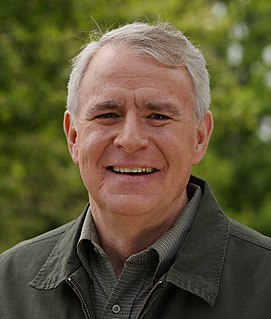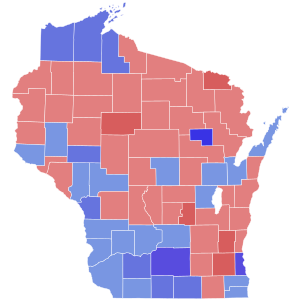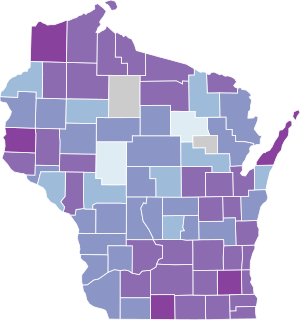Related Research Articles
In the United States, a political action committee (PAC) is a 527 organization that pools campaign contributions from members and donates those funds to campaigns for or against candidates, ballot initiatives, or legislation. The legal term PAC has been created in pursuit of campaign finance reform in the United States. This term is quite specific to all activities of campaign finance in the United States. Democracies of other countries use different terms for the units of campaign spending or spending on political competition. At the U.S. federal level, an organization becomes a PAC when it receives or spends more than $1,000 for the purpose of influencing a federal election, and registers with the Federal Election Commission (FEC), according to the Federal Election Campaign Act as amended by the Bipartisan Campaign Reform Act of 2002. At the state level, an organization becomes a PAC according to the state's election laws.
A 527 organization or 527 group is a type of U.S. tax-exempt organization organized under Section 527 of the U.S. Internal Revenue Code. A 527 group is created primarily to influence the selection, nomination, election, appointment or defeat of candidates to federal, state or local public office.
Campaign finance in the United States is the financing of electoral campaigns at the federal, state, and local levels. At the federal level, campaign finance law is enacted by Congress and enforced by the Federal Election Commission (FEC), an independent federal agency. Although most campaign spending is privately financed, public financing is available for qualifying candidates for President of the United States during both the primaries and the general election. Eligibility requirements must be fulfilled to qualify for a government subsidy, and those that do accept government funding are usually subject to spending limits on money.

The Wisconsin Supreme Court is the highest appellate court in Wisconsin. The Supreme Court has jurisdiction over original actions, appeals from lower courts, and regulation or administration of the practice of law in Wisconsin.
Herbert Fisk Johnson III, known as Fisk, is an American businessman. He is the fifth generation of his family to lead S. C. Johnson & Son, Inc of Racine, Wisconsin, as chairman and CEO.
James Bopp Jr. is an American conservative lawyer. He is most known for his work associated with election laws and campaign finance.
Citizens United v. Federal Election Commission, 558 U.S. 310 (2010), was a landmark decision of the Supreme Court of the United States concerning the relationship between campaign finance and free speech. It was argued in 2009 and decided in 2010. The court held that the free speech clause of the First Amendment prohibits the government from restricting independent expenditures for political campaigns by corporations, including nonprofit corporations, labor unions, and other associations.

Eric Stephen O'Keefe is an American political activist. In the 1990s, O'Keefe was involved in efforts to enact congressional term limits. He is involved as a strategist, board member, and donor with a number of organizations which seek to advance limited government and self-governance.

Campaign Legal Center (CLC) is a nonprofit 501(c)(3) government watchdog group in the United States. CLC supports strong enforcement of United States campaign finance laws. Trevor Potter, former Republican chairman of the Federal Election Commission, is CLC's founding president.

The 2012 Wisconsin gubernatorial recall election was a special election to elect the governor and lieutenant governor of Wisconsin. It resulted in voters re-electing incumbent Republican governor Scott Walker over the Democratic candidate Tom Barrett by a larger margin than he had in 2010, in which Walker had also faced Barrett. Recall organizers opposed Walker's agenda, particularly his limiting of collective bargaining rights for state employees and they collected over 900,000 signatures to initiate the recall election process. There was also a recall for Lieutenant Governor Rebecca Kleefisch. She won her race, defeating Democrat Mahlon Mitchell, making her the first lieutenant governor to run in and survive a recall.
Richard "Dick" Ellis Uihlein and Elizabeth "Liz" Uihlein are American billionaire businesspeople, founders of Uline and conservative donors. Dick is also an heir to the Schlitz brewing fortune.

David Alexander Clarke Jr. is an American former law enforcement official who served as Sheriff of Milwaukee County, Wisconsin, from 2002 to 2017.
Brian Keith Hagedorn is an American lawyer and a justice of the Wisconsin Supreme Court, serving since 2019. Prior to his election to the Supreme Court, he served four years as a judge on the Wisconsin Court of Appeals in the Waukesha-based District II.

The 2018 United States Senate election in Wisconsin took place on November 6, 2018, concurrently with a gubernatorial election and U.S. House elections. Incumbent Democratic U.S. Senator Tammy Baldwin won a second term, defeating Republican challenger Leah Vukmir by more than 10 percentage points. The primary elections were held on August 14, with a filing deadline on June 1. Baldwin was unopposed for the Democratic nomination, while Vukmir defeated Charles Barman, Griffin Jones, George Lucia and Kevin Nicholson in the Republican primary.

The 2018 Wisconsin Fall General Election was held in the U.S. state of Wisconsin on November 6, 2018. All of Wisconsin's partisan executive and administrative offices were up for election as well as one of Wisconsin's U.S. Senate seats, Wisconsin's eight seats in the United States House of Representatives, seventeen seats in the Wisconsin State Senate, and all 99 seats in the Wisconsin State Assembly. The 2018 Wisconsin Fall Partisan Primary was held August 14, 2018. There were also special elections held during 2018 for three State Assembly seats and two State Senate seats.

The 2022 United States Senate election in Wisconsin is scheduled for November 8, 2022 to elect a member of the United States Senate from Wisconsin.

The 2018 United States House of Representatives elections in Wisconsin were held on November 6, 2018, to elect the eight U.S. Representatives from the state of Wisconsin, one from each of the state's eight congressional districts. The elections coincided with other elections to the House of Representatives, elections to the United States Senate and various state and local elections. The Wisconsin Partisan Primary was held on August 14, 2018, with the governor, U.S. Senator, U.S. Representative, odd-numbered Wisconsin State Senate seats, and all Wisconsin Assembly seats on the ballot. Wisconsin was notable in 2018 for being the only state in which the party receiving the majority of votes held a minority of congressional seats.

The global COVID-19 pandemic struck the U.S. state of Wisconsin in early February 2020. Although Wisconsin has to date experienced 144 deaths per 100,000 residents, significantly fewer than the US national average of 196 deaths, COVID-19 was one of the three leading causes of death in Wisconsin in 2020. On August 25, 2021, Wisconsin public health authorities reported 7 day averages of 1,417 new cases and 236 probable cases per day, an increase of greater than 15 fold since late June 2021. This brings the cumulative total of COVID-19 cases in Wisconsin to 651,338. The state's death toll is 7,558, with 30 new deaths over the previous 7 days. As of August 25, 2021, 12.41% of Wisconsin's residents have been positively diagnosed with COVID-19, the 20th highest per-capita case rate among all US states. January 16's 128 COVID-19 deaths set a new single day record for Wisconsin.

The 2020 Wisconsin Fall General Election was held in the U.S. state of Wisconsin on November 3, 2020. All of Wisconsin's eight seats in the United States House of Representatives were up for election, as well as sixteen seats in the Wisconsin State Senate and all 99 seats in the Wisconsin State Assembly. Voters also chose ten electors to represent them in the Electoral College, which then participated in selecting the president of the United States. The 2020 Fall Partisan Primary was held on August 11, 2020.
In direct response to election changes related to the COVID-19 pandemic and 2020 United States presidential election in Wisconsin; the Donald Trump 2020 presidential campaign launched numerous lawsuits contesting the election processes of Wisconsin. All of these have either been dismissed or dropped.
References
- ↑ Gold, Lauren (12 November 2010). "$11M gift for Atacama telescope will help astronomers answer fundamental questions about galaxy, star formation". Cornell Chronicle . Retrieved 19 December 2013.
- ↑ "Inductee Highlight: Fred Young". Automotive Hall of Fame. 25 October 2013. Archived from the original on 10 August 2014. Retrieved 20 December 2013.
- ↑ Mullins, Robert (3 January 1999). "Young Radiator accesses capital as result of its sale". Milwaukee Business Journal . Retrieved 20 December 2013.
- ↑ Golden, Kate (6 February 2012). "State has some ties to super PACs". Wisconsin State Journal . Retrieved 20 December 2013.
- ↑ Bice, Daniel (9 June 2013). "Proposal to double campaign donation limits gets an unlikely objector". Milwaukee Journal Sentinel . Retrieved 20 December 2013.
- ↑ Zambo, Kristen (6 June 2013). "Lawsuit filed on Racine man's behalf challenging campaign contribution limit". Racine Journal Times . Retrieved 20 December 2013.
- ↑ "Breakthrough telescope in Chile renamed for benefactor alum". Cornell Chronicle. Retrieved 2021-04-19.